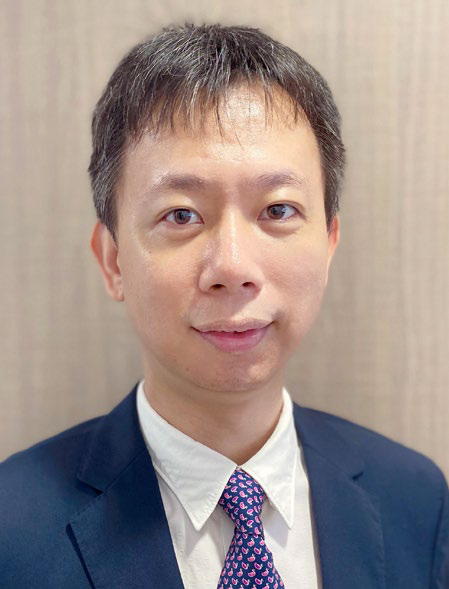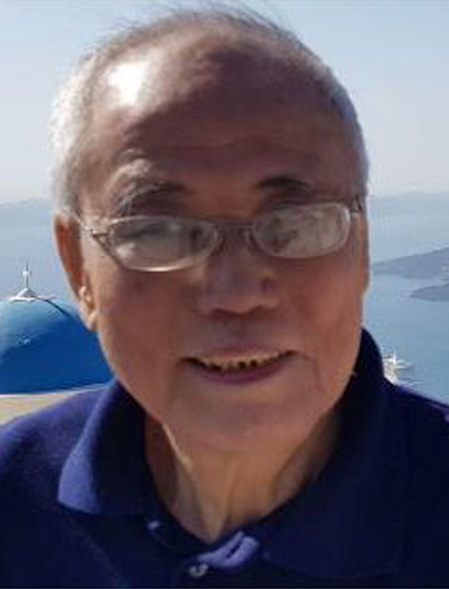Event
THE PROSPECTS FOR SMALL MODULAR REACTORS IN SOUTHEAST ASIA
Date: Thursday, 25 February 2021
Time: 10:00 – 12:00 (Singapore Time, GMT+8)
Click Here for Online Registration
Abstract
The need to sustain economic development amid global energy security worries – now compounded by highly uncertain oil prices and the devastation wrought by COVID-19 – means that policymakers must carefully evaluate options to future-proof against uncertainties. In practical terms, countries must meet rising energy demand caused by rapidly growing populations, while also transitioning to clean energy sources that minimize environmental harm and economic risk to stakeholders.
Small Modular Reactors (SMRs) have garnered increased attention around the world for their potential to provide low carbon energy that is easier to finance, quicker to deploy, and more flexible to site than conventional large nuclear technology. As we look to the coming decades, could SMRs offer new opportunities to the Association of South East Asian Nations (ASEAN)? When and how will ASEAN Member States benefit from this new technology?
ASEAN's pre-feasibility report on establishing nuclear power plants in the region, released in 2018, reflects the region's collective ambition towards reaping the benefits of nuclear power by 2030 and 2050, especially among the regional frontrunners: Indonesia, Malaysia, the Philippines and Vietnam. More recently, the Philippines and Indonesia have both taken steps signalling a renewed interest in nuclear power's potential.
Considering that ASEAN and the International Atomic Energy Agency signed a number of Practical Agreements in 2019 to increase technical and scientific exchanges, it is only a question of when rather than if nuclear will enter ASEAN's energy mix. Now is the time for ASEAN to identify the success factors for nuclear energy deployment in the region. While safety, security and safeguards are of natural importance, the economics, financing, and many other practical aspects of nuclear power project developments are crucial for a successful civilian nuclear programme.
In this webinar, we aim to- Convene experts in the nuclear power industry to discuss the opportunities and challenges in making SMRs an economical option for decarbonisation.
- Explore the potential for novel approaches to SMR development and application in ASEAN.
- Facilitate the exchange of experience among participants in developing and promoting next generation SMRs for the global market.
- Foster collaboration between the Energy Studies Institute and workshop participants in nuclear energy policy research.
Speaker Biographies
 |
Victor Nian Dr. Victor Nian is a Senior Research Fellow at the Energy Studies Institute (ESI), National University of Singapore (NUS). Dr. Nian holds a PhD in Mechanical Engineering and a Bachelor in Electrical Engineering with a Minor in Management of Technology, all from NUS. At ESI, the main focus of his research is on the peaceful and strategic use of atomic energy. He has been frequently featured in the media space on nuclear energy issues. His research portfolio also covers a wide spectrum of energy issues with focus on technology management and industrial policies. Some of the recent research projects under his leadership include carbon capture and storage, hydrogen economy, energy efficiency, HFC phase-down, and life-cycle techno-economic assessment of energy transition pathways. Dr. Nian is the founder and the Executive Director of UNiLAB on Integrated Systems Analysis Tools, which hosts a research network of more than fifteen academic and research organisations from around the world. He is also a Visiting Fellow at the University of Cambridge and an Adjunct Professor at Tianjin University of Commerce. Dr. Nian is the Managing Guest Editor of Applied Energy Journal on "Integration of Renewable Energy in Energy Systems: Perspectives on Investment, Technology, and Policy" and Invited Editor of a book, entitled, "Advanced Security and Safeguarding in the Nuclear Power Industry: State of the Art and Future Challenges": https://www.elsevier.com/books/advanced-security-and-safeguarding-in-the-nuclear-power-industry/nian/978-0-12-818256-7. |
 |
Michelle Brechtelsbauer Michelle Brechtelsbauer is Director of Stakeholder Relations at the Energy Impact Center (EIC), a Washington DC-based research institute focused on nuclear energy deployment as a means to decarbonize global energy production and increase access to clean, affordable power. Within this role, Michelle is the head of partnerships for the OPEN100 Project, the world's first open-source platform for the design of a small nuclear power plant. Michelle also coordinates EIC's strategic initiatives, including the Nuclear Energy Grand Challenge, aimed at spurring innovation around nuclear power's greatest deployment challenges. Throughout her career, Michelle has leveraged her background in engineering and science policy to accelerate the deployment of carbon-negative energy technologies. Prior to joining EIC, Michelle worked as a policy analyst, coordinating science, energy, and environmental policy across US Federal Agencies through the White House Office of Science Technology Policy (OSTP), and later the Science and Technology Policy Institute (STPI). Michelle is currently a Women Leaders in Energy Fellow with the Atlantic Council's Global Energy Center. She previously held fellowships with the MIT Energy Initiative, MIT Climate CoLab, and the University of Michigan Graham Sustainability Institute. Michelle received her Masters in Public Policy from the University of Michigan and a BS in Chemical Engineering from the University of Alabama. |
 |
Paul M. Murphy Paul M. Murphy focuses on multiple aspects of the nuclear industry – from legal and policy matters, including international regulatory and treaty frameworks and issues regarding nuclear liability, to strategies for creating and financing nuclear power programs and the identification and mitigation of associated risks – representing governments, developers/owners, investors, lenders, and contractors on nuclear projects internationally. He is recognized as an expert in the development and financing of nuclear power programs by the International Atomic Energy Agency (IAEA), the OECD's Nuclear Energy Agency (NEA), the International Framework for Nuclear Energy Cooperation (IFNEC), and the US government. Mr. Murphy regularly teaches financing, contracting, and project development for the IAEA, Argonne National Laboratory, and Texas A&M University for their international training programs. He has served (as a five-time appointee) to the U.S. Secretary of Commerce's Civilian Nuclear Trade Advisory Committee, and he serves on ASME's Clean Energy Technology Advisory Panel. He is also an Affiliate of Nuclear Economics Consulting Group. Mr. Murphy is a graduate of Princeton University's Woodrow Wilson School for Public and International Affairs and a graduate of Harvard Law School. For an extended profile for Mr. Murphy, please see: https://nuclear-economics.com/wp-content/uploads/2019/09/Paul-Murphy-full-resume-MEIC-Sept-2019.pdf. |
 |
Lim Soon Heng Mr. Lim Soong Heng is a mechanical engineering graduate of the National University of Singapore he is a Fellow of the IMarEST. Joining the industry in 1968, he is one of the pioneers of the Singapore marine industry. His expertise ranges from shipbuilding to the feasibility assessment, planning and design of shipyards across several countries around the world. He founded the Society of Floating Solutions (Singapore) in 2017, initiated the First World Conference on Floating Solutions and advised the organisation of the second World Conference on Floating Solutions in Rotterdam in October 2020. He champions the concept of mega floating structures to mitigate the threat of rising seas, and climate change. As President of the Society he has engaged officials of the Singapore government as well as members of the public to go beyond the conventional is space creation. He has delivered various lectures to various audiences why offshore floating nuclear power plant safe and desirable to improve the resilience of our energy supply chain. |
Download event slides (Victor Nian)
Download event slides (Michelle Brechtelsbauer)
Download event slides (Paul M. Murphy)
Download event slides (Lim Soon Heng)
Click here to watch the full event recording. (Password: &h0FH5jt)
